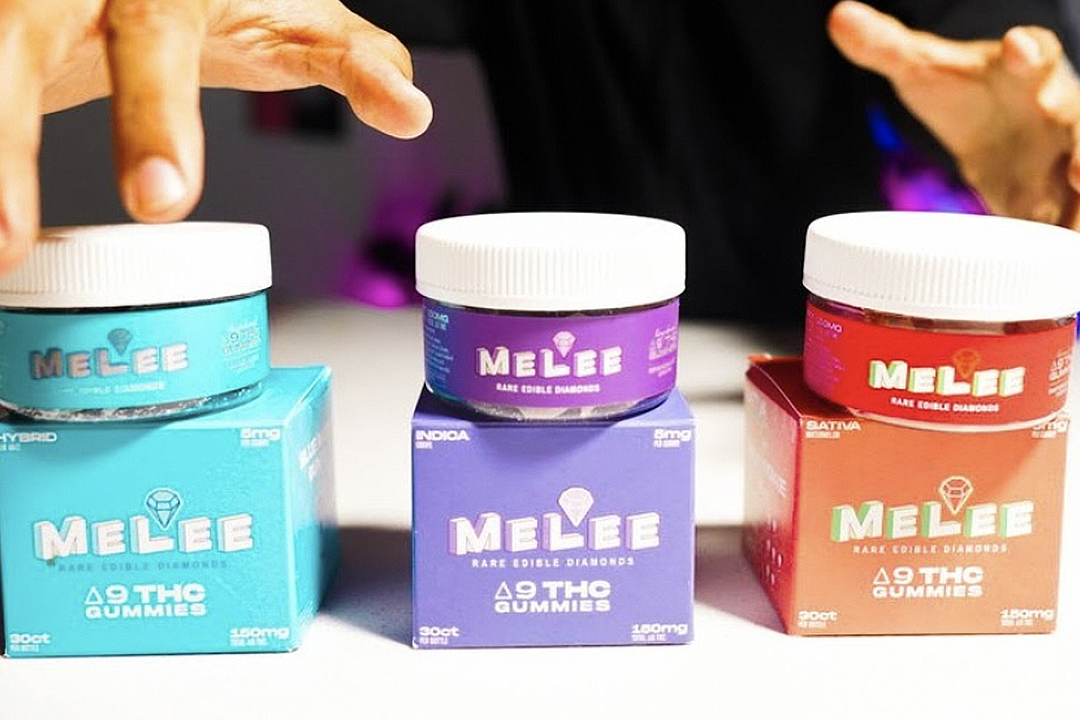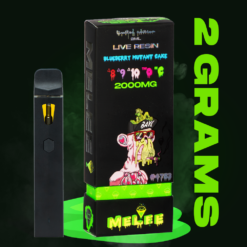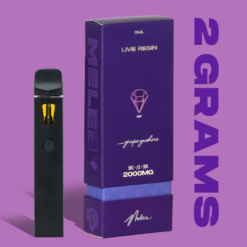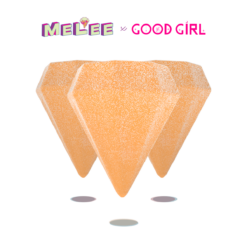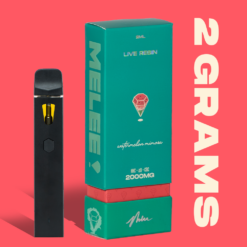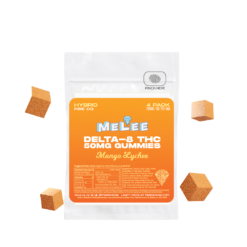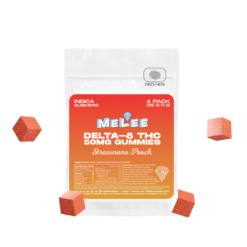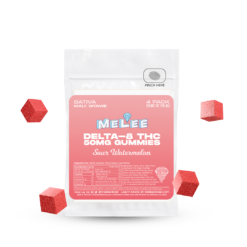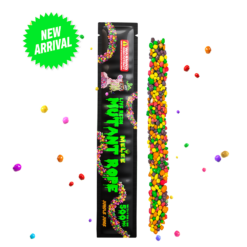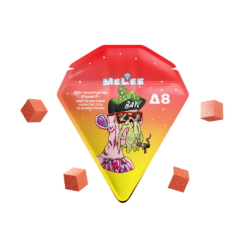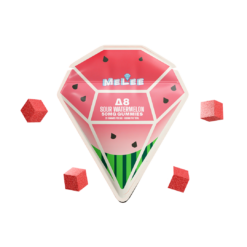Over the last decade, developments in the cannabis landscape have been mind-boggling. Weed went from being illegal to legal…well, the low-THC version. In some places, small amounts of this herb have been decriminalized. For cannabis users, these developments signal interesting times.
Consequently, novel cannabinoids have emerged. However, according to a technical report by the European Monitoring Centre for Drugs and Drug Addiction, “the markets for semi-synthetic cannabinoids (SSC) are rapidly evolving with relatively limited information currently available.”
This article looks at hexahydrocannabinol (HHC) and tetrahydrocannabinol acetate (THC-O) – a new generation of cannabinoids, mainly obtained via artificial synthesis. What are they, and how do they affect you? Stay put and learn.
Want the best HHC out there? You came to the right place. Here are some of our best-selling HHC products!
Key Takeaways
- HHC and THC-O stand for hexahydrocannabinol and tetrahydrocannabinol acetate, respectively.
- HHC occurs in trace amounts, so it’s usually synthesized from hemp CBD.
- THC-O is a non-natural cannabinoid obtained by hydrogenating Delta-8 or Delta-9.
- HHC is half as potent as Delta-9, while THC-O is 2-3 times stronger than Delta-9.
What Is HHC Cannabinoid
HHC is a phytocannabinoid component of cannabis. It naturally occurs in trace amounts, so it is produced synthetically by adding more hydrogen atoms to THC. This process is called hydrogenation, essentially meaning HHC is hydrogenated THC.
HHC was discovered in the early 1940s, but for unknown reasons, there’s limited research on it. While HHC is generally a THC analog, there are many other naturally occurring cannabinoid analogs of HHC.
So, if you’ve used whole-plant cannabis extract, there’s a good chance you’ve consumed HHC or its variants, albeit in small amounts. Today, HHC is openly sold as an alternative to THC, mostly as flower, oils, edibles, and vapes.
How Is HHC Made
HHC is both a natural and synthetic cannabinoid. It naturally occurs in trace amounts in cannabis. But to produce it in large quantities, manufacturers hydrogenate THC. The resulting compound is more stable, with a shelf life of 6-12 months, depending on the purity levels.
The two main methods for making HHC are: from botanical sources, like hemp CBD, and synthetic chemicals. The first approach is considered practical for large-scale production. The second method is advantageous because it creates stereoisomeric variants and HHC analogs.
Although the actual manufacturing method of HHC remains a protected trade secret, it basically involves converting hemp CBD into HHC via a two-step chemical process. The first step entails cyclizing CBD at high temperatures with an acid catalyst to produce Delta-8 THC, Delta-9 THC, and other byproducts.
Delta-8 and Delta-9 are then subjected to catalytic hydrogenation using platinum or palladium/charcoal catalyst to yield HHC. Note that the resulting product generally contains two isomers of HHC: 9α-HHC and 9β-HHC. The reaction conditions typically determine which isomer dominates the other. Overall, the 9β-HHC variant is more active.
The second method relies entirely on synthetic chemicals. But, owing to the Federal Analog Act, it’s probable that HHC created via the fully synthetic route is not permissible. It involves some high-level chemistry we won’t go deep into, but here’s an overview.
The procedure starts by condensing racemic ethyl 5-methylcyclohexanone-2-carboxylate with olivetol in the presence of concentrated sulphuric acid or phosphoryl chloride to yield tetrahydrobenzochromenone.
Tetrahydrobenzochromenone is then treated with excess methyl magnesium iodide to form tetrahydrodibenzopyran. The latter is hydrogenated to create HHC. Notably, these processes were developed in the 1940s in HHC studies. There are likely newer cost-effective methods that yield pure products.
Is HHC Naturally Occurring?
Yes, HHC is a naturally occurring phytocannabinoid. Be that as it may, its concentrations are extremely low hence the need to synthesize it from hemp CBD.
How Strong Is HHC?
HHC is a form of THC, so there’s no doubt that it’s psychoactive. That said, studies on its potency suggest it may be 40-50% as strong as THC. HHC’s potency is given in range form because it has two isomers, as mentioned earlier.
Generally, the potency of HHC depends on which isomer dominates the other. The 9β-HHC isomer is more active than the 9α-HHC, meaning HHC is stronger if the latter dominates the former in the mixture. Overall, the effects of HHC on rhesus monkeys indicate it’s roughly half as potent as Delta-9 THC.
How Does HHC Make You Feel
For little-known cannabinoids like HHC, we emphasize that people respond differently to them. We are all uniquely different in how our bodies process bioactive substances like drugs and cannabinoids.
But being an analog of Delta-9 THC, HHC likely displays similar effects to THC. So, low to moderate doses may produce euphoria, relaxation, pain reduction, and sedation. However, in higher doses, the adverse side effects of THC, e.g., anxiety, paranoia, bloodshot eyes, sleep disturbance, and nausea, are probable.
Anecdotal reports suggest the effects of HHC may be milder and longer-lasting than those of THC. There is no empirical data on the effects of HHC on humans. In monkeys, however, a study showed that 1mg/kg of HHC induced a range of effects, including:
- Ataxia and stupor
- Immobility
- Crouched posture for more than three hours
- No reaction to external stimuli
These effects were similar to those caused by a 0.5mg/kg dose of Delta-9 THC. Generally, the psychotomimetic effects of HHC are attributed to the 9β-HHC and not 9α-HHC.
What Is THCO Cannabinoid
The THCO cannabinoid (also known as THC-O or THCo) is a little-known compound that doesn’t occur naturally in cannabis. So it’s synthesized from hemp-derived Delta-9 THC or tetrahydrocannabinolic acid (THCA) precursor.
THC-O is also known as THC acetate, implying it’s an ester of THC. The first documented research on THC-O dates back to 1949 – 1975, with interest in its highly incapacitating properties.
THC-O is thought to be “significantly more potent” than Delta-9 THC, so it’s a compound you might want to be extremely careful with. Like HHC, THC-O is sold in various consumable forms, including edibles, tinctures, and vapes.
How Is THCO Made
The main difference between THC-O and other “THCs” like Delta-8 and 9 is that it has an acetate group, while THCs have a functional hydroxyl group. This means making THC-O entails adding an acetate group to a psychoactive cannabinoid.
But since Delta-9 is controlled under the Controlled Substances Act (CSA), Delta-8 THC is commonly used to manufacture THC-O. So the process begins by converting hemp CBD into Delta-8, which is then treated with acetone solvents to create THC-O.
The acetone solvent is highly flammable and potentially explosive. As a result, special labs with specialized equipment are needed for this process.
There’s currently a lot of controversy on whether converting hemp CBD into THC-O is legal. The CSA posits that while certain components and parts of cannabis may be legal, altering them [via chemical means] into other compounds could be illegal. More on this later.
Is THCO Naturally Occurring?
No, THC-O doesn’t occur naturally. It can only be synthesized from other cannabinoids like Delta-8 and 9.
Is THCO Stronger Than HHC?
Yes, THC-O is way stronger than HHC. It’s thought to be 2-3 times more potent than Delta-9 THC. On its part, HHC is about 50% as powerful as Delta-9 THC.
So, THC-O is probably 4-5 times stronger than HHC. Is this a good thing? Well, according to board-certified neurologist and leading authority in cannabis research, Ethan Russo, M.D., it probably isn’t.
The reason is that Delta-9 THC is broadly considered a strong CB1 receptor agonist. All cannabinoids exert their effects via the endocannabinoid system (ECS), which only needs a gentle nudge to work better. A compound 2-3 times stronger than Delta-9 THC doesn’t give the ECS a gentle nudge; it gives it a violent shove.
Even when used medically, Delta-9 THC is often prescribed in small doses to skew the effects toward the benefits. In the case of THC-O, its high potency levels may be a problem, especially for users just getting started on cannabis.
How Does THCO Make You Feel
Being more potent than Delta-9 THC, THC-O transcends mental and physical effects and produces psychedelic-like results. This means it affects all your senses and alters your thinking, sense of time, and emotions. This is why sometimes the word “spiritual” is used to define the THC-O experience.
If you struggle with high doses of Delta-9 THC, it’s probably a good idea to keep off THC-O. This compound produces similar side effects as Delta-9 but at a much stronger intensity. Overindulging in THC-O could cause dizziness, cold sweats, increased heart rate, loss of coordination, and short-term memory loss.
What Is The Difference Between THC-O And HHC
THC-O and HHC are different in several ways. The first is their source. HHC is naturally synthesized in cannabis, but THC-O isn’t. The only way to produce THC-O is by chemically converting THC.
Their level of potency is also different. HHC is less potent than THC-O and Delta-9 THC – their primary precursor. As mentioned earlier, HHC is about 50% as strong as THC, while THC-O is 2-3 times more potent than THC.
And due to these differences in potency, the effects of THC-O and HHC differ significantly. THC-O produces near-psychedelic results that some users describe as “deeply spiritual.” Comparatively, HHC has mild THC-like effects such as euphoria, calmness, and a sense of motivation.
Another area where these two cannabinoids differ is shelf life. Pure HHC can stay fresh for 6-12 months, depending on storage conditions. With THC-O, the typical lifespan is six months which is shorter than most Delta-9 THC products.
What Are The Best Ways To Take HHC And THC-O
While how you take HHC and THC-O is a matter of preference, some methods enable you to maximize their potential benefits.
Vaping
Vaping is quite popular because it’s perceived to be less harmful than smoking. The jury is still out on this, though. Regardless, vaping equipment is designed to make vaping hygienic and safe. They come in different sizes and forms, so you can choose one that meets your needs.
One advantage of vaping is that the effects kick in within minutes – a plus for users seeking quick relief.
Edibles
You’ve probably heard of CBD gummies, pills, capsules, etc. If you prefer HHC or THC-O edibles, your options are almost limitless.
However, edibles usually kick in much slower than other cannabis products. This is why it’s easier to overdose on edibles. To stay safe, start with small portions and wait 30 – 45 minutes before the next serving.
Smoking
Notwithstanding its dangers, smoking is a hugely popular way of taking HHC and THC-O. There are no HHC or THC-O-rich strains, so manufacturers spray low-THC flower with HHC or THC-O distillates. This results in a highly potent flower with similar effects to vapes and edibles.
Can You Take HHC + THCO Together?
Theoretically, you can take HHC and THC-O together. Both compounds have different pharmacological profiles, so combining them makes sense from an entourage effect point of view. However, considering both substances are psychoactive, it’s unclear how their collective effect could affect you. Do the benefits outweigh the risks? We don’t know for sure.
Is HHC And THCO Safe?
HHC induces hepatotoxic effects, e.g., nausea, dizziness, vomiting, paranoia, etc., at higher concentrations. So, it’s safe to say that HHC is considerably safe at lower concentrations.
Over and above these, the manufacturing processes of cannabinoid products appear to be their main downside. Contamination with extraction residues and/or synthetic byproducts may pose unforeseen risks.
Further, traces of heavy metals from the catalysts used during hydrogenation could be present in some HHC/THC-O products. It’s also probable that the crude hemp extract may easily contain cannabinoid derivatives meaning the product’s pharmacological effects may not be due solely to HHC.
As for THC-O, it doesn’t look pretty. A recent study documented a severe panic attack that lasted 2 hours in a user who had never vaped Delta-9 or THC-O. Another study linked inhaling Delta-8 THC-O to severe lung disease similar to that seen during the EVALI epidemic in 2019.
The lung injury in EVALI cases is thought to have been caused by ketene – a potent lung irritant formed when acetate moieties are heated. Moreover, considering that THC-O is way stronger than Delta-9, we can’t discount the potential risk of overdosing.
Are HHC And THCO Legal?
The legality of new cannabinoids is a grey area. The 2018 Farm Bill legalized hemp and its derivatives as long as its Delta-9 THC levels remained below 0.3%. Because the Farm Bill only references Delta-9, it’s created a loophole cannabis companies have exploited to produce other psychoactive compounds.
What’s the federal position on this? In response to a publication in the Journal of Medical Toxicology on the legality of THC-O, the DEA responded as such:
“Delta-9-THCO and Delta-8-THCO do not occur naturally in the cannabis plant and can only be obtained synthetically, and therefore do not fall under the definition of hemp…. Thus, Delta-9-THCO and Delta-8-THCO meet the definition of “tetrahydrocannabinols,” and they (and products containing Delta-9-THCO and Delta-8-THCO) are controlled in schedule I by 21 U.S.C. § 812(c) Schedule I, and 21 CFR § 1308.11(d). ”
As for HHC, its legal status is blurry, but the consensus is it occurs naturally in hemp, so it’s legal. But with some states now planning new restrictions on Delta-8, HHC may come under renewed scrutiny.
Final Thoughts — HHC vs. THC-O
As the cannabis space widens, many synthetic cannabinoids have emerged. The downside is that controlling these substances has become more challenging. Regarding HHC and THC-O, the lack of research means their usage risks are virtually unknown. Moreover, the lack of regulations and oversight makes knowing about their potency and safety difficult.
Nonetheless, THC-O’s popularity is growing thanks to its psychedelic effects and strength. Users can get long-lasting, powerful highs from modest dosages. So, if you’re up for some HHC and THC-O products, ensure you get them from reputable sources.
Where To Buy HHC And Other Alt Cannabinoids
HHC and other alt cannabinoids are available as edibles or vapes. These can be bought from online retailers like Melee Dose. Our products are third-party tested to ensure they are of high quality.
Learn more about why you should consider HHC vapes. Talking of vapes, here are the top HHC vapes worth trying out:
Our Wedding Cake Live Resin Disposable Vape contains an exciting blend of cannabinoids like HHC, Delta-8, 9, and 10 enhanced with Wedding Cake terpenes and blueberries for a potent, satisfying inhale for relaxation and euphoric effects.
The Grape Gushers Live Resin Disposable Vape contains an indica cannabinoid blend of HHC, CBN, and Delta-9 to provide a short burst of energy and deep sedation. This is ideal for users seeking deep, sweet slumber.
Or you can go for the Watermelon Mimosa Live Resin Disposable Vape, which features a sativa cannabinoid blend of HHC, CBC, and Delta-9 for an uplifting and motivating effect to help you take on any task.
If vaping is not your thing, you can also try these delicious gummies. They all combine HHC with other cannabinoids like Delta-9, Delta-8 and HHCO. They’re available in different flavors and strain combinations so you’ll find the gummy for every time of the day.

